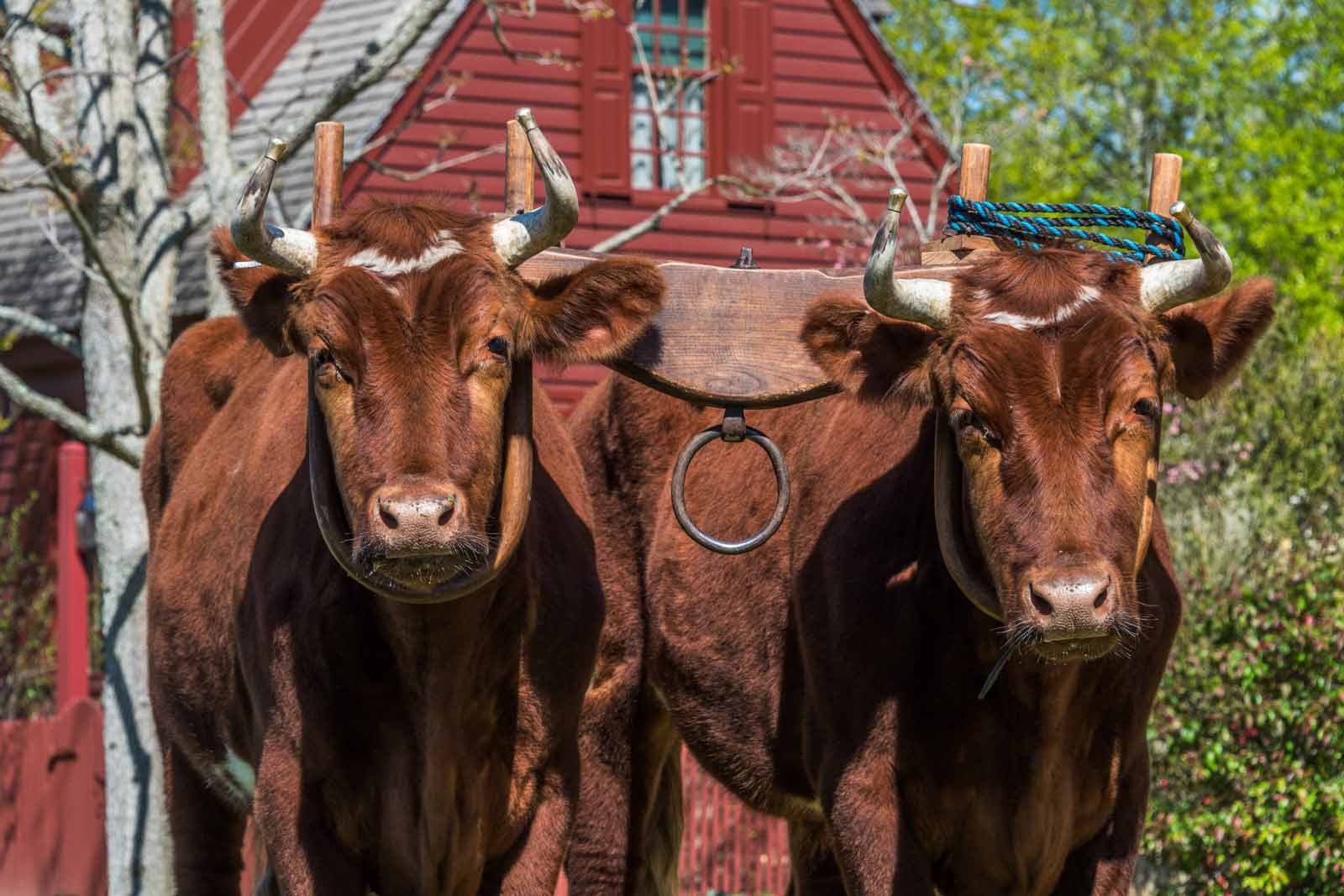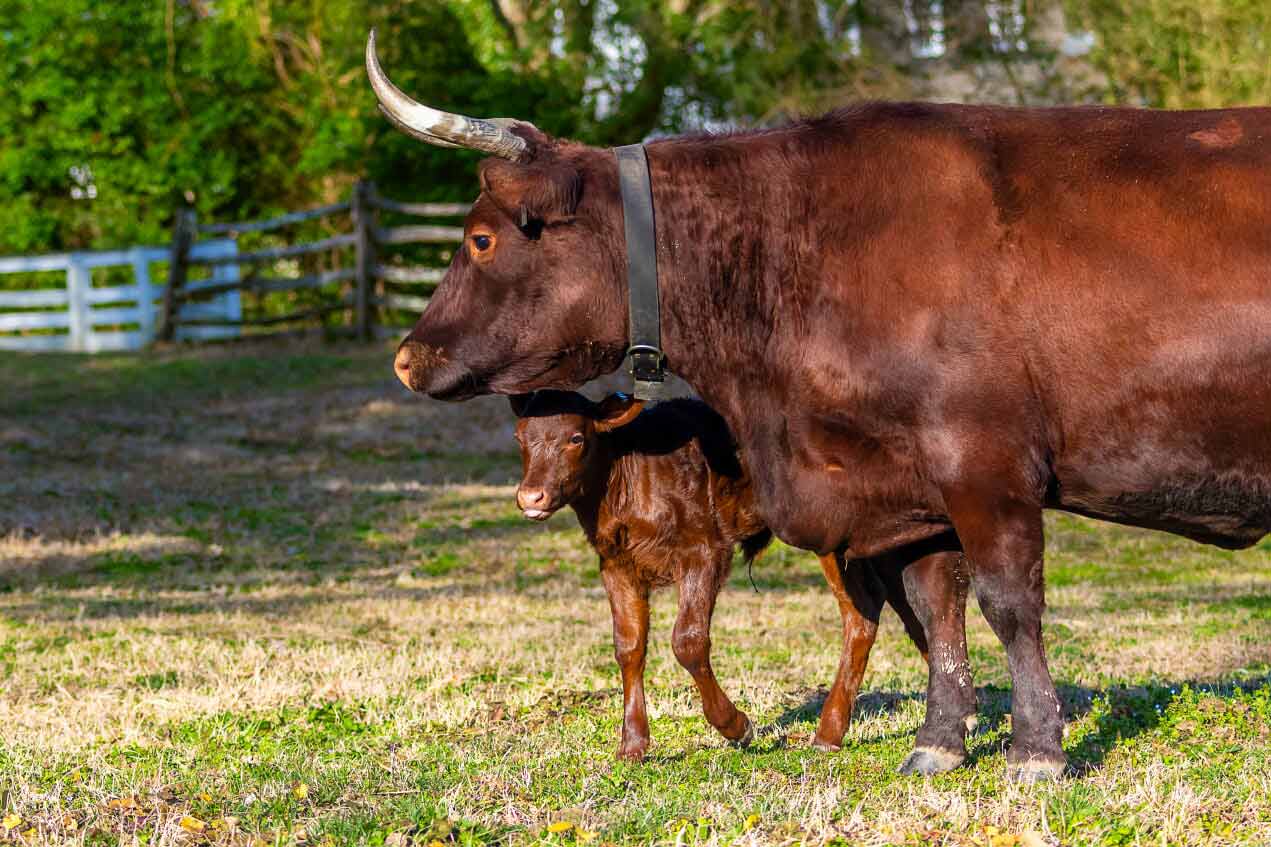The American Milking Devon breed originated in Devonshire, England. They are a dark red color, with blond hair at the end of their tails. In general, these are smaller cows and weigh anywhere between 1000 to 1300 pounds. These cattle were mainly used for draft purposes, such as plowing fields or pulling carts. They were valued for their intelligence as well as their ability to graze on just about anything, allowing farmers to maintain them more easily.
The first recorded instance of a Milking Devon arriving in the New World was in 1623 to the Plymouth Colony with 2 heifers (females) and a bull. Over the next 200 years, the breed grew and spread throughout the East Coast. By the late 1800s, the breed had begun to be replaced by the Shorthorn Cattle and it was rare for a Devon to be seen outside of New England. As the need for beef cattle grew, the Devon breeders formed several organizations to help preserve their breed as a dairy breed and have been successful. Today there are over 500 Milking Devon in the U.S. Here at Colonial Williamsburg, we are proud to have 16 of them with many babies on the way.

USES IN COLONIAL TIMES
In the 1700s, in addition to being used for their milk, meat, and leather, they were also used as oxen for pulling carts and wagons. Oxen is not a breed of cattle; it is a job title. Oxen can be male or female, but generally when we refer to oxen we are talking about a steer, which is a castrated male, as the other cattle are usually preoccupied with taking care of the youngsters.

To pull their carts and plows, the cattle wear something like a collar that is called a “bow;” this is the wooden U-shaped object that is around their necks. This bow would be attached to a cart or wagon by a pin and they would use their shoulders to pull the cart. When they stop, their horns prevent the bow from sliding off the front of their head. It also helps keep the bow in place when they put their heads down when they stop.

One thing you will notice about our cattle is that they all have horns. In fact, all the cattle that you see in town are female. We keep their horns long as that is a part of the breed standard. The breed standard is essentially a list of qualities that the cattle must meet. Our cattle have been put to the test against the breed standard at the VA State Fair and have shown very well!

Our cattle will be back out in the Historic Area soon with new babies. Look for them behind the Randolph House. They will be excited to see you!
Samantha Hughes is the Administrator and a certified carriage driver for the Coach and Livestock Department. She has been working in this role since 2017. She is a graduate of George Mason University with a Master’s degree in Political Science. In her spare time Sam enjoys playing volleyball, video games, and spending time with family.
